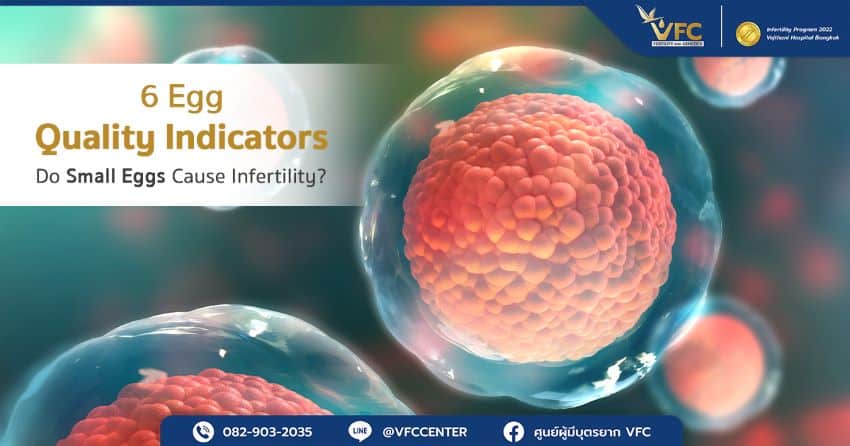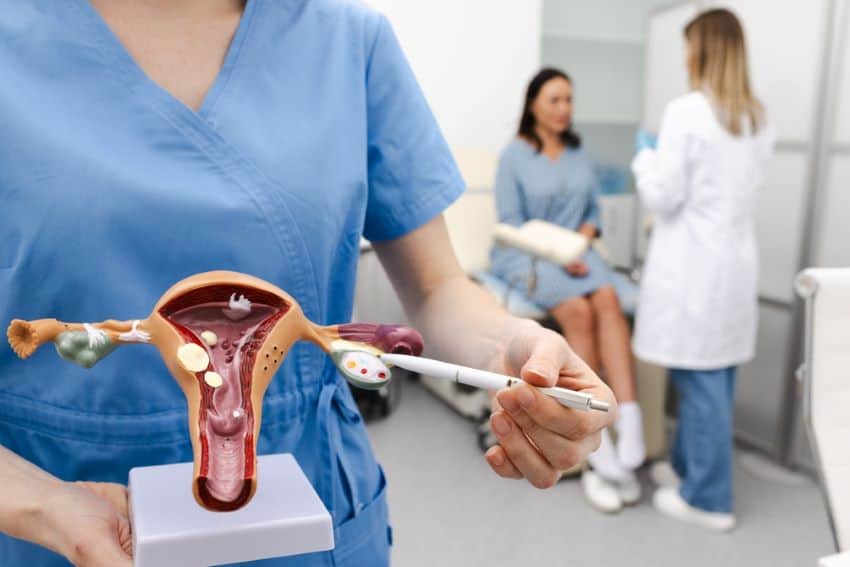
Many women facing fertility concerns wonder whether small eggs signal underlying problems with egg quality or even infertility itself. In fact, when eggs remain abnormally small, they often reflect incomplete maturation or hormonal imbalance, reducing their chances of successful fertilization. Understanding what these size deviations mean—and how they relate to ovarian health—can empower you to take timely action. This article will walk through 6 egg quality indicators, explain how small eggs may affect fertility, and point to advanced solutions like the egg freezing program in Bangkok for preserving reproductive potential.
We may have heard that egg quality affects the chances of conception. But did you know that small eggs may be a sign of more serious fertility issues than you might think? For women planning to conceive or concerned about egg quality, understanding the factors that influence egg production can help in better planning. It also reduces risks and improves the chances of having a healthy pregnancy in the future.
6 Egg Quality Indicators Every Prospective Parent Should Know
The oocyte (egg cell) is the largest reproductive cell in the human body. Its main role is to carry the female’s genetic material and combine it with sperm to create an embryo. In other words, conception can only occur when the egg cell is fully mature. Several key factors affect egg quality and readiness, which ultimately influence the success of conception, including:
1. Anti-Müllerian Hormone (AMH) Levels
AMH levels indicate the ovarian reserve or overall ovarian function. They are used to assess a woman’s reproductive potential. Normal AMH levels suggest a higher number of eggs and a greater chance of high-quality eggs. Typically, AMH levels range from 1.0 to 4.0 ng/mL.
Conversely, low AMH levels can indicate a reduced ovarian reserve, which correlates with naturally decreased egg quality. AMH testing can be performed at any point in the menstrual cycle because this hormone remains relatively stable, unlike others that fluctuate.
2. Other Relevant Hormone Levels
- FSH (Follicle Stimulating Hormone): Stimulates follicle growth
- LH (Luteinizing Hormone): Crucial for egg maturation and triggering ovulation
- Prolactin and TSH (Thyroid-Stimulating Hormone): Not directly involved in reproduction, but excessive levels can disrupt ovarian function and affect egg quality
3. Follicle Growth and Estradiol Hormone
Monitoring follicle growth via ultrasound helps evaluate egg quality. Properly developing follicles increase the likelihood of high-quality eggs. Estradiol, produced by growing follicles, indicates ovarian response to stimulation and provides preliminary insight into egg quality.
4. Physical Characteristics of the Egg Cell
Egg evaluation considers external appearance and cellular function. Healthy eggs have a smooth surface, uniform color, and resilient cytoplasm, which aids fertilization. Normal eggs also exhibit a properly sized polar body, signaling full maturity. Typically, the egg measures about 0.2 millimeters, visible to the naked eye.
5. Ovulation and Egg Maturity Window
Consistent ovulation each cycle is a sign of a healthy reproductive system and strong egg cells. The “mature egg window” can be tracked through:
- Counting ovulation days
- LH test kits
- Basal body temperature monitoring
6. Other Factors Affecting Egg Quality
- Age: The most critical factor influencing both the quantity and egg quality, especially in women over 25, as egg count and quality significantly decline
- Reproductive Health: Conditions affecting the ovaries, uterus, or fallopian tubes, such as endometriosis or uterine fibroids, can impact egg quality
- Overall Health: Maintaining hormonal balance and a healthy lifestyle—nutritious diet, regular exercise, stress management—supports ovarian function and egg quality

Do Small Eggs Really Cause Infertility?
Yes, abnormally small eggs (less than 0.2 millimeters) indicate incomplete development and are often not ready for ovulation in that cycle. This reduces the chances of fertilization and conception. Causes of small eggs include:
- Arrested development during follicular growth, preventing full maturation and ovulation
- Hormonal imbalances affecting FSH or LH
- Incomplete egg quality due to genetic or structural abnormalities
When eggs are small and underdeveloped, the likelihood of ovulation decreases. Even if fertilization occurs, the resulting embryo may be less viable, increasing the risk of miscarriage or reduced fertility. Therefore, small eggs are a critical indicator of infertility risk.
How to Improve Egg Quality and Reduce Small Egg Risks
To avoid issues with small eggs and support healthy egg quality, women can follow these practical steps:
- Eat nutrient-rich foods that nourish eggs, including antioxidants, B vitamins, folic acid, protein, and iron
- Avoid smoking, alcohol, and excessive caffeine to minimize exposure to toxins harmful to egg cells
- Exercise regularly to improve blood flow and ovarian efficiency
- Manage stress effectively, as stress can impact reproductive hormones and ovulation
- Stay hydrated and ensure adequate rest to maintain overall body balance and reproductive health
For personalized guidance on enhancing egg quality, the first step toward healthy conception is consulting specialists at VFC Center (V Fertility Center). Here, you can receive professional advice on IVF costs, infertility concerns, and overall reproductive support from experienced obstetricians and gynecologists.
To learn more about advanced fertility support, including the egg freezing program in Bangkok, schedule a consultation with our expert team today.
Article by Dr. Nannapat Parosiyanont
Contact or Book a Consultation:
VFC Center – V-Fertility Center
Hotline: 082-903-2035
LINE Official: @vfccenter

The team of specialists in obstetrics and gynecology and reproductive medicine





No Comments
Sorry, the comment form is closed at this time.